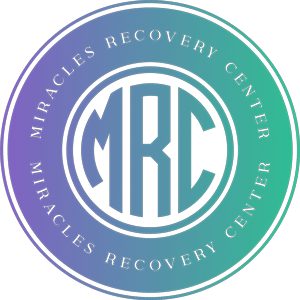[et_pb_section fb_built=”1″ _builder_version=”4.18.0″ _module_preset=”default” global_colors_info=”{}”][et_pb_row _builder_version=”4.18.0″ _module_preset=”default” global_colors_info=”{}”][et_pb_column type=”4_4″ _builder_version=”4.18.0″ _module_preset=”default” global_colors_info=”{}”][et_pb_image src=”https://miraclesrc.com/wp-content/uploads/2022/08/admitting-powerlessness-over-addiction.jpg” alt=”woman sitting in a wooded area in a meditation pose” title_text=”Admitting Powerlessness Over Your Addiction” _builder_version=”4.18.0″ _module_preset=”default” global_colors_info=”{}”][/et_pb_image][/et_pb_column][/et_pb_row][/et_pb_section][et_pb_section fb_built=”1″ _builder_version=”4.18.0″ _module_preset=”default” global_colors_info=”{}”][et_pb_row _builder_version=”4.18.0″ _module_preset=”default” global_colors_info=”{}”][et_pb_column type=”4_4″ _builder_version=”4.18.0″ _module_preset=”default” global_colors_info=”{}”][et_pb_text _builder_version=”4.18.0″ _module_preset=”default” global_colors_info=”{}”]
When we feel powerless, we often turn to addiction as a way to cope. Addiction provides a false sense of control and power, which can be incredibly seductive when we feel like our lives are spiraling out of control.
However, this false sense of power quickly turns into a destructive force that takes over our lives. Feelings of powerlessness can be caused by a variety of factors, including trauma, abuse, poverty, and mental illness.
If you’re struggling with addiction, it’s important to understand the role that powerlessness may be playing in your disease. Only then can you begin to build the strength and resilience necessary to overcome addiction and create a life worth living.
Understanding Addiction
Addiction is a complex disease that can vary significantly from person to person. However, there are some common threads that run through all forms of addiction.
At its core, addiction is a way of coping with the pain and trauma of life. It’s a way of numbing our emotions and escaping the reality we’re living in.
For many people, addiction starts as a way to cope with a specific event or set of circumstances. But it quickly spirals out of control and takes over their life, often culminating in negative consequences.
The Connection between Mental Health and Substance Use Disorders
Mental health and substance use disorders are often comorbid, meaning that they occur together. In fact, the National Alliance on Mental Illness notes that about one out of every five adults in the United States suffers from a mental illness each year. And of those adults, about one in two also have a substance use disorder.
There are a number of reasons why mental health and substance use disorders might occur together. One reason is that people who have mental health disorders might self-medicate with drugs or alcohol in an attempt to relieve their symptoms.
Additionally, drug use can actually worsen the symptoms of mental illness, creating a vicious cycle of drug use behavior and mental illness that can be difficult to break.
The feeling of powerlessness is a common symptom of both mental health and substance use disorders. People who feel powerless may turn to drugs or alcohol as a way to escape their feelings or numb themselves to the outside world.
What’s more, the act of using drugs or alcohol can itself create a sense of powerlessness, as people become addicted and their lives begin to revolve around their substance use.
The feeling of powerlessness can have a profound impact on a person’s mental health. People who feel powerless are more likely to experience anxiety, depression, and other mental health disorders.
And the sense of powerlessness can lead to self-destructive behaviors, such as substance abuse, as people attempt to escape their feelings or numb themselves to the world around them.
If you or someone you know is struggling with mental health and substance use disorders, it’s important to seek help. Treatment can provide you with the tools you need to recover and live a healthy, fulfilling life.
How the Feeling of Powerlessness Impacts Addiction
Many people who are struggling with addiction feel a sense of powerlessness. This can be due to a number of factors, including the way that addiction changes brain chemistry and the fact that addiction often leads to financial and social problems.
The feeling of powerlessness can make it difficult for people to recover from addiction, as they may feel like they have no control over their lives.
Power imbalances in addiction recovery are a big factor. People who feel like they have no power or control over their lives are more likely to relapse, as they may see drug use as a way to escape from their problems.
It’s important to create a sense of balance in your life after addiction, and part of that is making sure that you have power and control over your own recovery.
One way to do this is to make sure that you have good mental health evaluations. This will help you understand your addiction and how it’s impacting your life. It can also help you develop a plan for recovery that includes things like therapy and support groups. Taking control of your mental health is a great way to start taking control of your addiction recovery.
Can Admitting Powerlessness Over Addiction Help?
When we hear the term powerlessness, we may think of being overcome by something or someone. In the context of addiction, powerlessness takes on a different meaning. It is admitting that you cannot control your addiction or drinking problem. You may feel like you are in over your head, and no matter what you do, you cannot get sober or clean.
The first step in Alcoholics Anonymous (AA) is admitting that you are powerless over your addiction and that your life has become unmanageable. This may be a difficult concept for some to grasp, but it is an important step in recovery.
How to Create a Powerless List
One way to help you come to terms with your powerlessness is to create a list of things that addiction has taken away from you. This can be difficult, but it can also be very eye-opening. It may help you see just how much addiction has impacted your life and why recovery is so important.
Some things that addiction may have taken away from you include:
- Your job
- Your family
- Your friends
- Your health
- Your money
- Your self-respect
When you look at this list, it is easy to see how addiction can quickly spiral out of control. It can take away everything that is important to you. This is why recovery is so important. It can help you get your life back on track and regain the things that addiction has taken away from you.
What’s Next After I Admit I Am Powerless?
The admission of powerlessness is not the end. In fact, it is only the beginning of the personal growth process. After admitting that you are powerless over your addiction, you can begin to take back control of your life. The first step is to seek professional help.
At Miracles Recovery Center, we offer a variety of addiction treatment resources that can help you on your road to recovery. Our programs are designed to meet your unique needs, and we will work with you to create a treatment plan that is right for you.
If you are ready to take the first step, contact us today. We are here to help you on your journey to recovery.
[/et_pb_text][/et_pb_column][/et_pb_row][/et_pb_section]




